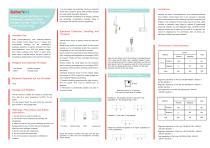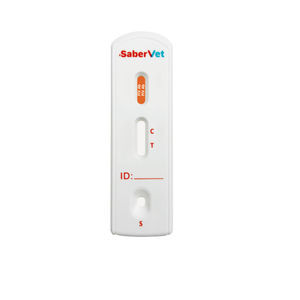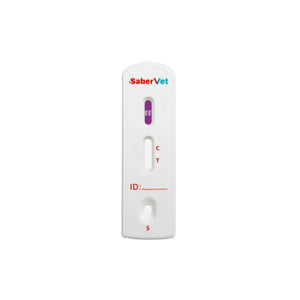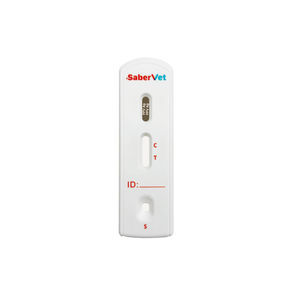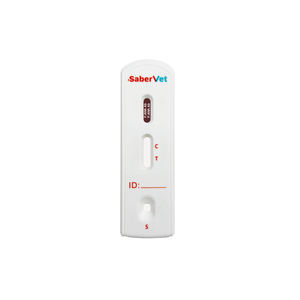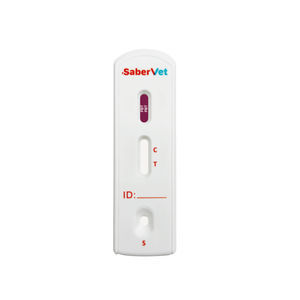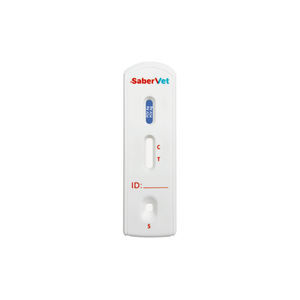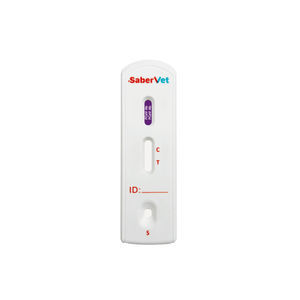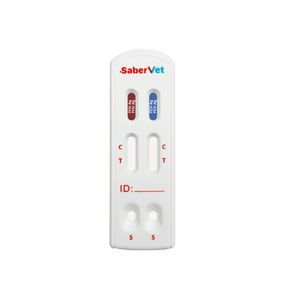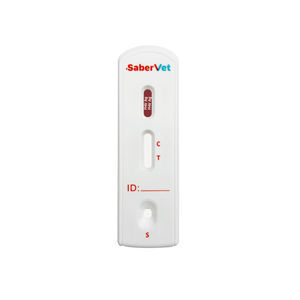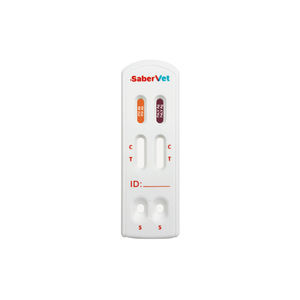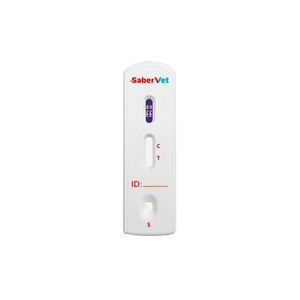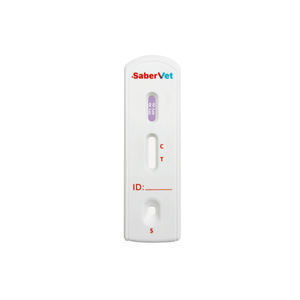
- Laboratory
- Laboratory medicine
- Rapid allergy test
- Hangzhou Antigenne Technology Co. Ltd
- Company
- Products
- Catalogs
- News & Trends
- Exhibitions
Rapid fecal occult blood test Sabervetinflammatory bowel diseaseallergyveterinary
Add to favorites
Compare this product
fo_shop_gate_exact_title
Characteristics
- Applications
- fecal occult blood, inflammatory bowel disease, allergy
- Application field
- veterinary
- Patient type
- for canines
- Tested parameter
- hemoglobin
- Sample type
- blood, feces, fecal
- Analysis mode
- immunoassay, lateral flow
- Format
- cassette
Description
Sabervet Canine Fecal Occult Blood Rapid Test sold by Antigenne is a lateral flow immunoassay intended for the qualitative detection of hemoglobin in fresh Canine feces sample.
Description
Fecal occult blood in dogs refers to a clinical symptom of the presence of blood in the feces that is not visible to the naked eye.
This symptom may be caused by certain diseases of the digestive tract or intestines. Testing for this symptom can determine whether dogs have gastrointestinal or intestinal diseases.
Pathological Introduction
Gastrointestinal bleeding: The causes of gastrointestinal bleeding may be mechanical (such as ulcer rupture) or inflammatory (such as inflammatory bowel disease). One of the most common reasons is diseases or injuries inside the digestive tract, such as gastric ulcers, intestinal inflammation, tumors, or injuries. These conditions may lead to blood entering the digestive tract.
Food allergy or poisoning: Some dogs may have allergic reactions to specific foods or ingest toxic substances, leading to gastrointestinal inflammation and bleeding, manifested as blood in the stool.
Intestinal parasite infections: Such parasitic infections as hookworms and tapeworms can cause damage to the intestinal mucosa and bleeding, resulting in blood in the stool. This condition is usually accompanied by other symptoms such as diarrhea and weight loss.
Infectious diseases: Such bacterial, viral, or other pathogen infections as bacterial enteritis and canine distemper may cause damage to the intestinal mucosa and bleeding, resulting in blood in the stool.
Exhibitions
Meet this supplier at the following exhibition(s):

Other Hangzhou Antigenne Technology Co. Ltd products
Feline
Related Searches
- Blood rapid diagnostic test
- Rapid lateral flow test
- Immunoassay rapid diagnostic test
- Cassette rapid diagnostic test
- Virus rapid diagnostic test
- Serum rapid diagnostic test
- Plasma rapid diagnostic test
- Infectious disease rapid diagnostic test
- Whole blood rapid diagnostic test
- Rapid respiratory infection test
- Urine rapid screening test
- Bacteria rapid diagnostic test
- Rapid feces test
- Clinical rapid diagnostic test
- Nasal rapid diagnostic test
- Obstetrical/gynecological rapid test
- Rapid oral flu test
- Dog rapid test
- Laboratory rapid diagnostic test
- Coronavirus rapid diagnostic test
*Prices are pre-tax. They exclude delivery charges and customs duties and do not include additional charges for installation or activation options. Prices are indicative only and may vary by country, with changes to the cost of raw materials and exchange rates.


